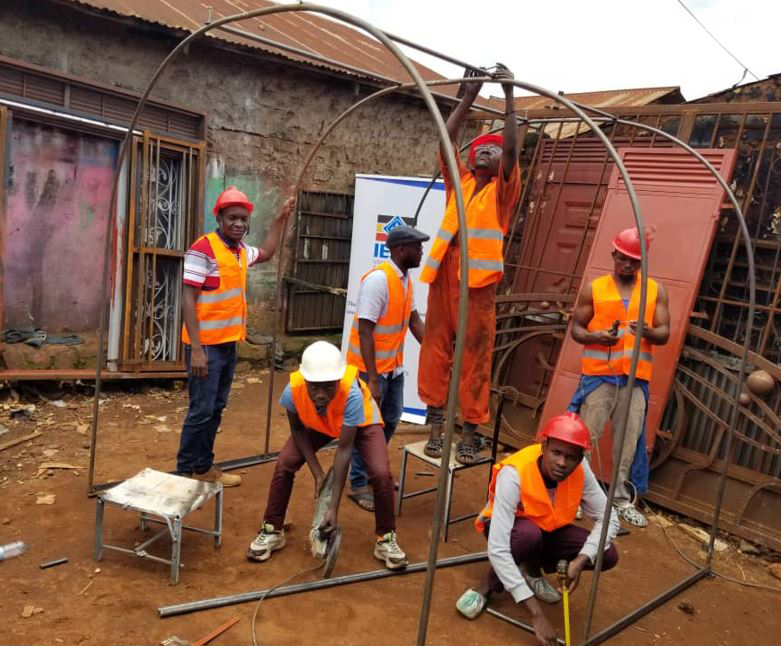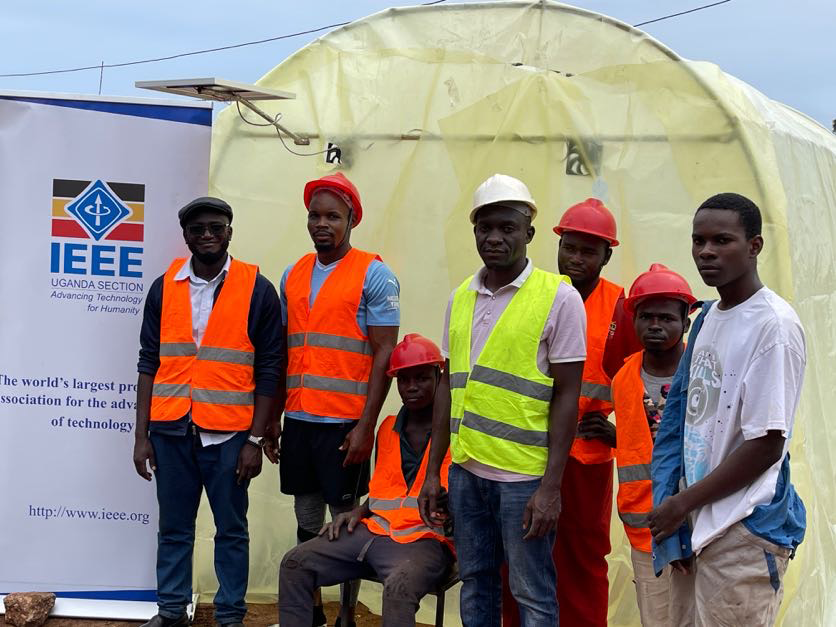Uganda’s main economic activity is farming, involving about 70% of the population. However, most of the farmers rely on traditional practices that can be inefficient or ineffective. Uganda is ranked among one of the least developed countries (LDCs), whose state of affairs has been worsened by the effects of climate change. As a result, several communities in Uganda face shortages of food, encounter low-income levels, and have few wealth-creation assets.
The country’s socio-economic landscape faces considerable hardships which can be lessened by utilizing creative engineering technologies.
Farmer groups and communities usually face many challenges which among others include the consumption of food contaminated with aflatoxins, a known carcinogen according to cancer.gov. Exposure can be traced to post-harvest methods and practices. Crop destruction from disasters such as rain and droughts is also a concern. This also leads to contamination, poisoning, and wastage, all of which result in disease and famine that subject communities to high levels of deaths and chronic illnesses.

To combat these challenges, engineering students, professional engineers from the IEEE Uganda section, and other stakeholders have a big role to play in creating suitable climate mitigation solutions that can intervene in these situations. With a $3,942.41 grant from EPICS in IEEE, a team of engineering students from Makerere University collaborated with farmer communities and the Prosper Community Organization in Uganda to create an affordable and sustainable solar dryer to handle the post-harvest challenges of the crops they produce.
The solar-powered dryer ensures that crop yields are not contaminated and properly dry for human consumption. To do so, they started with project meetings with all participating stakeholders, like IEEE members and NGO members. They then designed, tested, and assembled a prototype of the dryer structure involving solar panel technology. From there, they then moved on to the installation and deployment of solar panels, trays, fans, regulators, and batteries. They also installed the Ultra Violet/Polycarbonate sheets.

By participating in this project, the engineering students were able to practice and share their engineering skills while enhancing other related soft skills to enable them to perfect and advance their engineering career paths. Members of the team comment, “While working on the project, we have learned so many things like managing design, material search and procurement, model making, and testing of the solar dryer in a very short amount of time…We had a wonderful experience of practical engineering.”
The project also enabled the community members to appreciate the role of technology and engineering in solving the existing challenges.
“The team worked on designing and developing [a] Solar Dryer,” members of the team described. “This is used for drying agricultural products. We worked on improving the design of the solar dryer, which reduced the cost and drying time. We have applied an innovative shape to the reflectors based on our engineering.”
According to the team, the project resulted in reduced crop loss and lowered exposure to aflatoxins. The project also resulted in a better community understanding of the positive use of solar panels and how their power can improve the environment.
The project team appreciates the critical funding support from EPICS in IEEE which has enabled this project to take shape and make progress. They hope that the community members will learn from the implemented technology lessons and can scale up the same technology.

Recent Comments